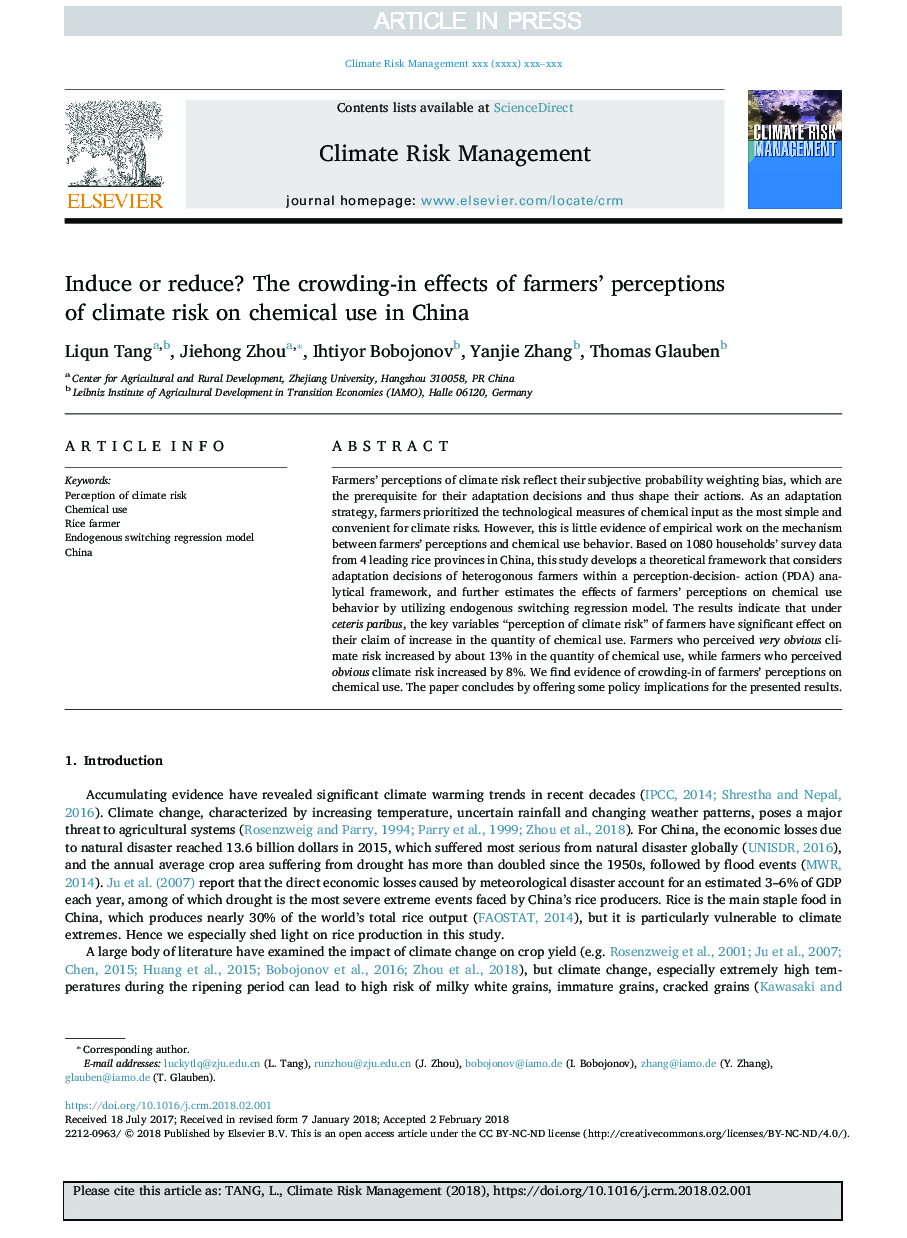| Article ID | Journal | Published Year | Pages | File Type |
|---|---|---|---|---|
| 7462063 | Climate Risk Management | 2018 | 11 Pages |
Abstract
Farmers' perceptions of climate risk reflect their subjective probability weighting bias, which are the prerequisite for their adaptation decisions and thus shape their actions. As an adaptation strategy, farmers prioritized the technological measures of chemical input as the most simple and convenient for climate risks. However, this is little evidence of empirical work on the mechanism between farmers' perceptions and chemical use behavior. Based on 1080 households' survey data from 4 leading rice provinces in China, this study develops a theoretical framework that considers adaptation decisions of heterogonous farmers within a perception-decision- action (PDA) analytical framework, and further estimates the effects of farmers' perceptions on chemical use behavior by utilizing endogenous switching regression model. The results indicate that under ceteris paribus, the key variables “perception of climate risk” of farmers have significant effect on their claim of increase in the quantity of chemical use. Farmers who perceived very obvious climate risk increased by about 13% in the quantity of chemical use, while farmers who perceived obvious climate risk increased by 8%. We find evidence of crowding-in of farmers' perceptions on chemical use. The paper concludes by offering some policy implications for the presented results.
Keywords
Related Topics
Physical Sciences and Engineering
Earth and Planetary Sciences
Atmospheric Science
Authors
Liqun Tang, Jiehong Zhou, Ihtiyor Bobojonov, Yanjie Zhang, Thomas Glauben,
